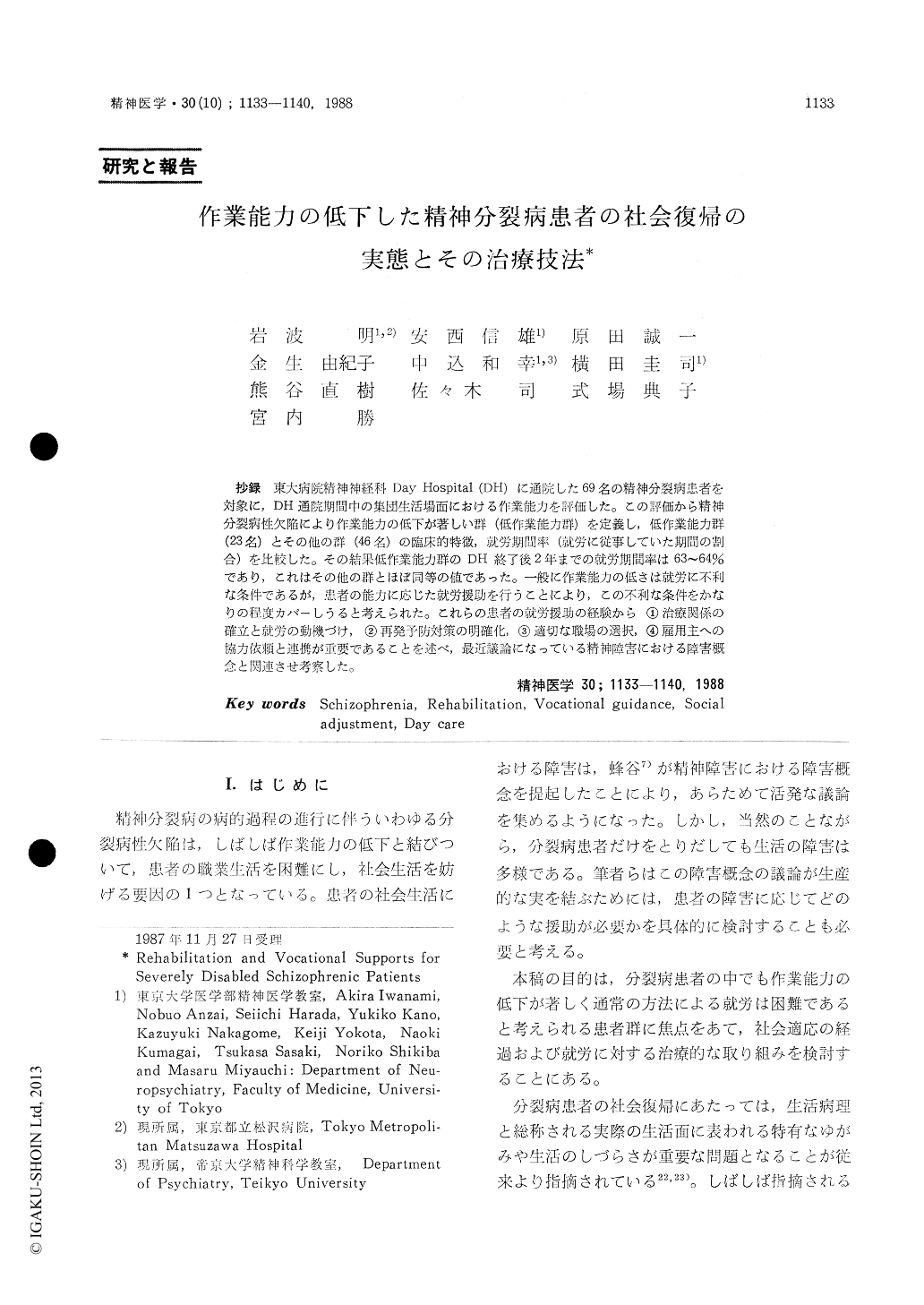Japanese
English
- 有料閲覧
- Abstract 文献概要
- 1ページ目 Look Inside
- サイト内被引用 Cited by
抄録 東大病院精神神経科Day Hospital(DH)に通院した69名の精神分裂病患者を対象に,DH通院期間中の集団生活場面における作業能力を評価した。この評価から精神分裂病性欠陥により作業能力の低下が著しい群(低作業能力群)を定義し,低作業能力群(23名)とその他の群(46名)の臨床的特徴,就労期間率(就労に従事していた期間の割合)を比較した。その結果低作業能力群のDH終了後2年までの就労期間率は63〜64%であり,これはその他の群とほぼ同等の値であった。一般に作業能力の低さは就労に不利な条件であるが,患者の能力に応じた就労援助を行うことにより,この不利な条件をかなりの程度カバーしうると考えられた。これらの患者の就労援助の経験から①治療関係の確立と就労の動機づけ,②再発予防対策の明確化,③適切な職場の選択,④雇用主への協力依頼と連携が重要であることを述べ,最近議論になっている精神障害における障害概念と関連させ考察した。
The purpose of this study was to investigate the vocational skills of schizophrenic patients, and the relationship of those skills with the course of social adjustment.
We studied sixty-nine young schizophrenic patients, who had been treated in the Day Hospital attached to the Neuropsychiatric Department of Tokyo University Hospital. The patients were followed up for more than two years after the termination of the Day Hospital treatment.
Vocational skills of the subjects were evaluated by the nurses who attended the group activities of the Day Hospital, using our original rating scale.

Copyright © 1988, Igaku-Shoin Ltd. All rights reserved.


